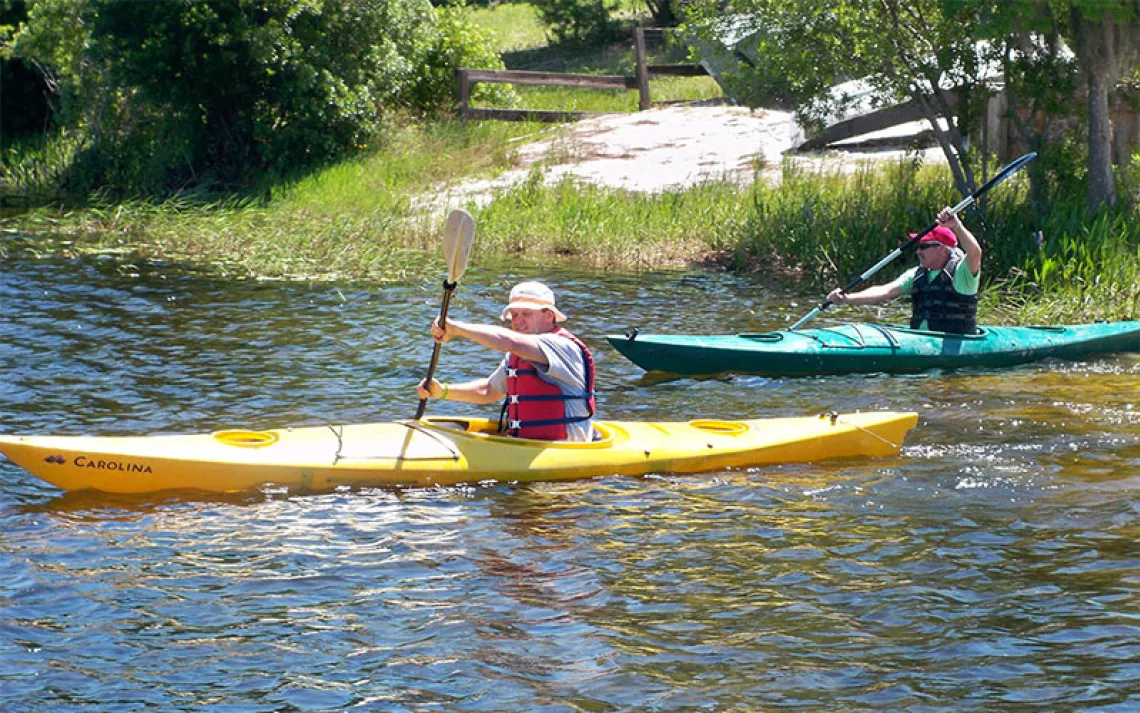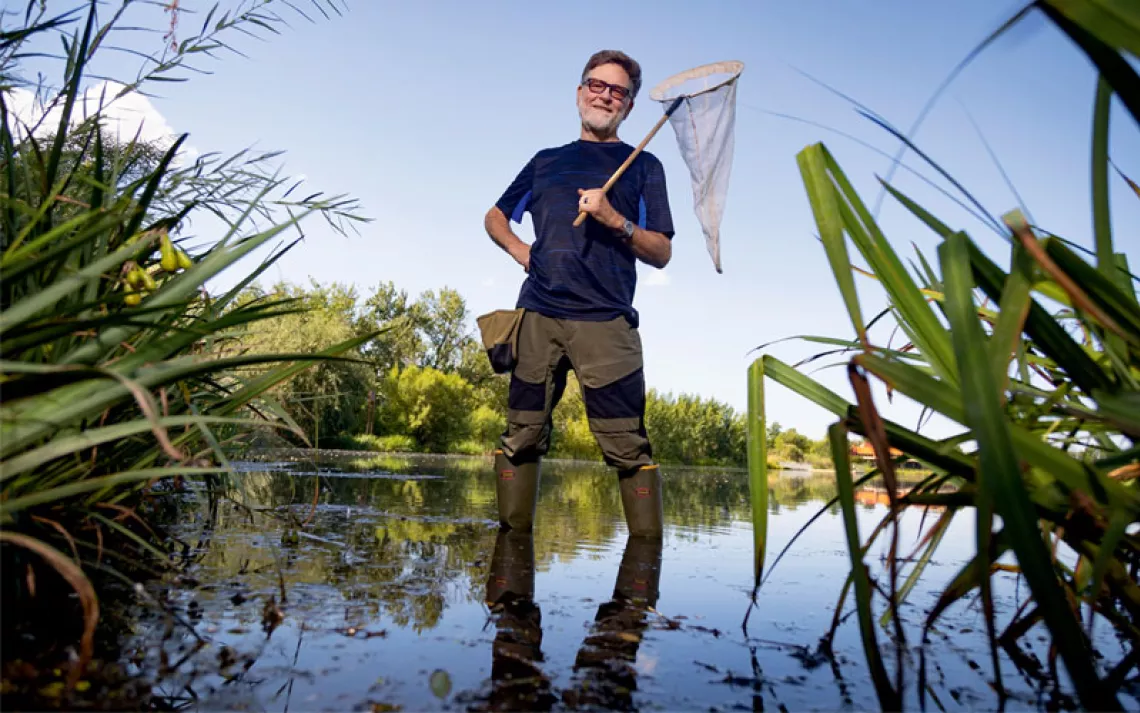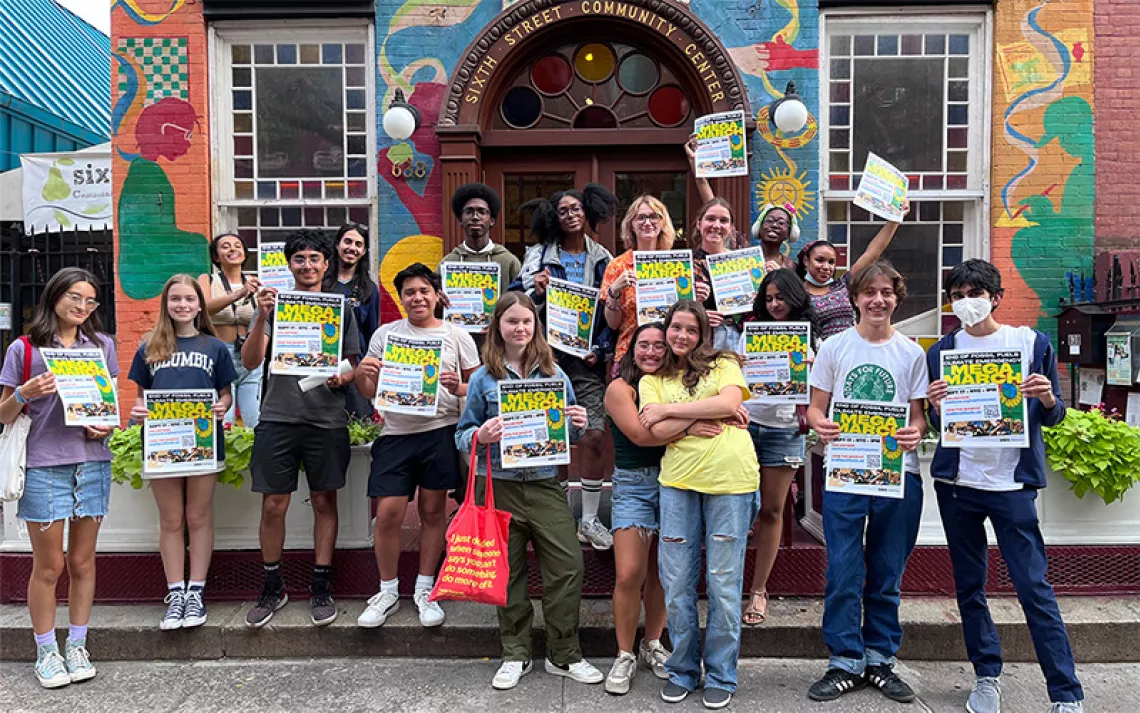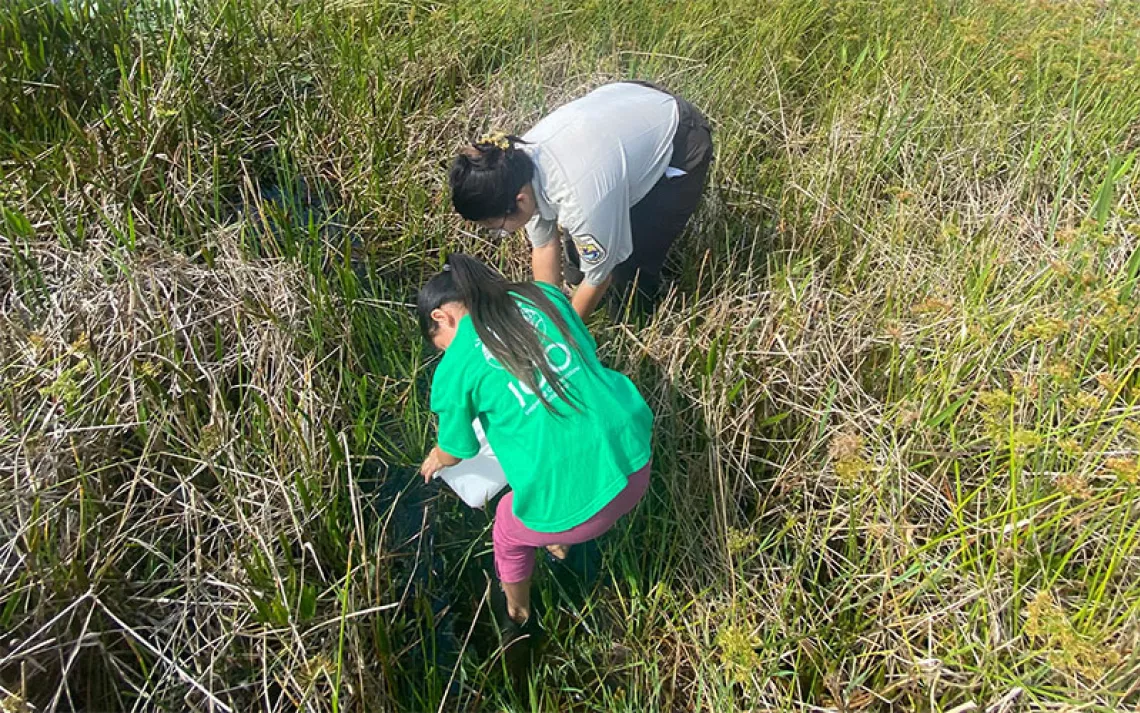Meet Roommate, Study Hard, Build Rain Catchment?

Andrew Agard and Cassia Armstrong are traveling to Trinidad to install a rainwater catchment system. | Photo courtesy of Cassia Armstrong
Most college freshmen just hope to get along with their roommate and survive finals. But Andrew Agard and Cassia Armstrong had loftier goals. They spent this past year at Trinity College in Hartford, Connecticut, developing a rainwater catchment system, and this summer, they are traveling to the Trinidad village of St. Ann's to install it.
Agard grew up in Trinidad, where his father is an environmental science researcher. Armstrong grew up in British Columbia and remembers how her mom, also her softball coach, would spread the team out on the foul line after each game to do a running sweep for garbage. Lesson learned: “Always leave a place better than how you found it.”
Armstrong's mother: “Always leave a place better than how you found it.”
The two met in a first-semester seminar called the Interdisciplinary Science Program (ISP). Their final assignment was to create a mock proposal for the Davis Projects for Peace grant, a national initiative for students to implement grassroots projects anywhere in the world. Fueled by their mutual concern for the environment, Agard and Armstrong teamed up and decided to develop a serious contender for the grant. Their first idea was to create a rainwater catchment and drip irrigation system for a garden in Tanzania. But Agard realized he could have a bigger impact closer to home when his father connected them to the Fondes Amandes Community Reforestation Project (FACRP) in Trinidad.
Located in the hills above St. Ann’s, the Fondes Amandes Community Reforestation Project is a squatter community of environmental activists. Historically, squatter communities in Trinidad have destroyed land, tearing down large sections of forest for housing, but the Fondes Amandes group is dedicated to ecological conservation, helping nearby residents by fighting bush fires and planting trees. With no means to store water, however, that mission is difficult to carry out during the dry season, from January to May.
Once they chose a location, Agard and Armstrong continued to research water catchment systems, finally settling on their design. Their ISP professor, Alison Draper, offered guidance and brought their concept to other faculty to evaluate. In March, the duo’s work paid off when their system won the $10,000 grant.
In mid-August, Agard and Armstrong will travel to Trinidad to build the catchment system at FACRP’s study center for disadvantaged Trinidadian students. During the wet season, from June to December, rainwater will flow from the roof of the building down into gutters, then into a pipe where it will be filtered before entering a 1,300-gallon tank. The stored water will be used for irrigation and to fight forest fires when the dry season sets in.
While they plan to take some short breaks for birdwatching and zip-lining during their three-week trip, mostly they’ll be busy constructing their project. The two enthusiastically agree: “We’re always trying to save the planet!”
 The Magazine of The Sierra Club
The Magazine of The Sierra Club







